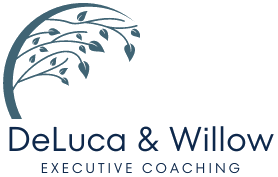Don’t Take Anything Personally, Really?
I’ve been sharing how I’ve been integrating the principles of the Four Agreements by Don Miguel Ruiz into my life for the past couple of years. The Four Agreements are: 1) Be Impeccable with Your Word. 2) Don’t Take Anything Personally. 3) Don’t Make Assumptions. 4) Always Do Your Best. I discussed 4) Always Do Your Best and 1) Be Impeccable with Your Word. This week, I’ll spend some time on 2) Don’t Take Anything Personally.
How does taking things personally work?
According to the book, and this was another ‘ah ha’ moment for me, you take things personally when you agree with whatever was said. It’s called personal importance, because we make the assumption that everything is about ‘me’. We may not do this consciously, but we do tend to do this. When we take something personally, we also make the assumption they know what is in our world and, as a result, we try to impose our world on them. Seems like, we tend to take offense and then to defend.
So, it’s about them.
A large part of my coaching business is based on the presuppositions of Neurolinguistic Programming. The first presupposition is the notion to have respect for another person’s model of the world. People’s points of view comes from all their learning, experiences, beliefs, values, etc. What is driving them to say, do, behave in any certain way is theirs, and theirs alone. Consequently, nothing other people do is because of you.
Why does it feel personal, though?
Firstly, it feels personal because, often, the words we hear are pushing a button or poking at an old wound. Again, this often is not a conscious reaction or thought. Secondly, we get upset and the easy target is the person delivering the message vs. taking a look at ourselves. The book highlights that the underlying emotion is typically fear. Fear of (insert your favorite) fuels discontent with self and others over time. Lastly, when we really see others as they are without taking things personally, we cease to be hurt by what they say or do. Most of all, that’s pretty liberating, isn’t it?
It’s not personal, it’s business
As an HR professional, if I had a dollar for every time I heard the phrase ‘it’s not personal, it’s business’, I’d be able to rescue a lot of animals in need. The interesting point is this statement is true. Especially when we apply 2) Don’t Take Anything Personally to the workplace. If you think about the mission of a company, the purpose for which it exists, it usually doesn’t include anything about any one of us, personally. To bring that down to daily interactions, you may be in a meeting, participating in healthy debate, receiving critical feedback and it starts to feel personal. Ask yourself, why? What need do you have that is not being met? What fear is below the surface? Now, there are politics and bad intentional behavior that exists in the workplace. And, even if people are ‘out to get you’, is that really about you? According to the second agreement, no. Ruiz, the author, goes so far as to say: “Even if someone got a gun and shot you.., it was nothing personal. Even at that extreme.”
Tips for Not Taking Anything Personally:
- Notice when it starts to feel personal. Self awareness is a great first step.
- Ask yourself: What need do I have that is not being met in this moment? What fear is below the surface? Don’t judge, just notice. If you notice a pattern over time, it’s helpful to engage a mentor, coach or trusted advisor to work through it.
- Create some space between yourself and your response. Take the time to think about the situation, journal your insights, approach next steps like an opportunity. If you were coaching a colleague or peer in this exact scenario, what would you tell them?
- Recapitulate your day, focusing on the positive things that happened. And, it could be a key learning on insight from a challenging experience. So, what was good about today?
- Decide to not take anything personally. This decision alone will begin to change how you view your interplays throughout the day.
I hope you found the discussion about the second agreement, Don’t Take Anything Personally, helpful. When you adopt this practice, you tend to notice the positive impact in your life. Negative words, ideas and intentions don’t land like they used to, if at all. In conclusion, you feel more positive, happy and at peace with yourself. You know you are using your power (of words) for good and not evil. Yes, you go, superhero.
Are you ready?: Press HERE for Success
As adults we spend the bulk of our waking hours ‘at work’. We only have a finite amount of time on this planet, and you can choose how to spend that time. I wish you much success on your career quest. Yours in balance, learning, growth and harmony. – Melissa DeLuca, CEO



